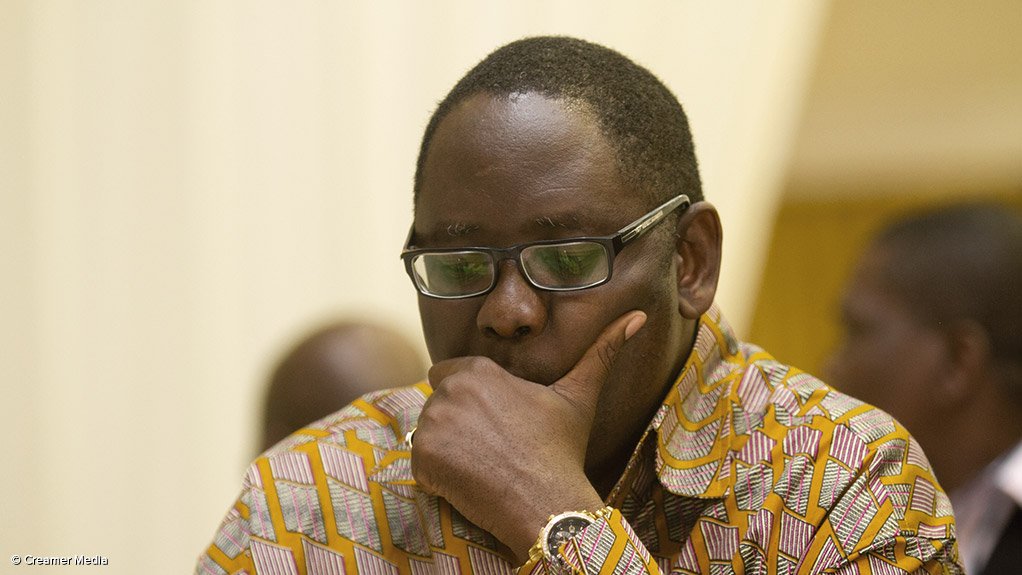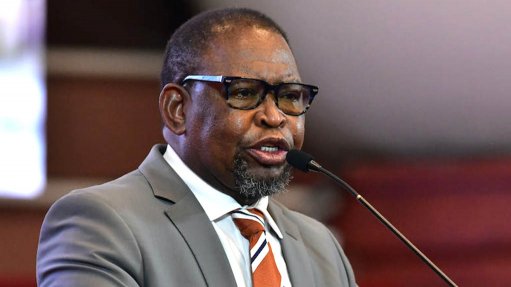South Africa’s energy transition won’t be ‘just’ in absence of inclusive social dialogue
South African Federation of Trade Unions (Saftu) general-secretary Zwelinzima Vavi has called for urgent social dialogue on South Africa’s “inevitable” energy transition from coal to renewable energy, warning that the country’s current framework will fail to deliver a just outcome for workers and poor communities.
Speaking at a seminar in Johannesburg convened under the theme ‘Unlocking a Just Energy Transition for South Africa’, Vavi said not a single union failed to recognise that there would be a shift away from a carbon-based economy.
However, a platform was required to allow workers and society to express their “fears” about the transition, particularly in relation to job losses.
Such a platform was also needed to build consensus on how the transformation of the energy sector could be used to benefit workers and communities directly, rather than only private energy investors.
The National Economic Development and Labour Council (Nedlac), Vavi argued, remained the only platform for coordinating social dialogue between government, labour, business and communities.
“So Nedlac has to be the main platform to ensure that parties do come together to reach a single understanding on the way forward in relation to the movement from carbon to renewables.”
He, therefore, lamented the fact that Nedlac continued to exclude Saftu, which was formed in 2016 after a split in the Congress of South African Trade Unions.
Vavi stressed that Nedlac would only be effective in its role if it were to be restructured to be more inclusive, not only of new labour federations, such as Saftu, but also of community groups.
Nedlac Business Energy Task Team member Mike Levington, of Kabi Energy, concurred with Vavi that it was vital that a structure be established to facilitate a dialogue on the so-called just energy transition.
He also acknowledged that Nedlac, in its current form, was not sufficiently inclusive and suggested that the Presidential Climate Change Coordinating Commission, the establishment of which is proposed in the Presidential Jobs Summit framework agreement, might provide an alternative forum.
“The social partners need to unpack and reach consensus on what a just energy transition means practically and what their roles are in it,” Levington said during the seminar hosted by Nedbank and EE Publishers.
German Embassy Head of Mission Dr Ruediger Lotz also stressed the importance of inclusivity, noting that ongoing consultations with citizens had been crucial for sustaining support for its ambitious Energiewende programme.
Under the initiative, Germany plans to have 80% of its final gross electricity consumption, and 60% of final energy consumption, met through renewable energy by 2050. Currently, the renewables share of gross electricity consumption is 37%.
Consultation would also be critical, Lotz said, for the implementation of Germany’s recent decision to phase-out coal by 2038.
Centre for Complex Systems in Transition at Stellenbosch University co-director Professor Mark Swilling argued that any just energy transition in South Africa should be guided by vision of a “transformed world” outlined in the Sustainable Development Goals, which “implies the eradication of poverty without blowing the fuses of the planet – that is the challenge of our generation.”
He cautioned, though, that there was a danger that the country could end up implementing an unjust transition, whereby the transition to a decarbonised energy system leaves poverty and inequality intact.
“What matters is the directionality of the renewable-energy revolution,” Swilling said, arguing that South Africa’s current corporate-driven model was unlikely to deliver a just outcome.
“We are missing the opportunities for public and social ownership of renewable energy in a way that is far more inclusive than what is happening now.”
Comments
Press Office
Announcements
What's On
Subscribe to improve your user experience...
Option 1 (equivalent of R125 a month):
Receive a weekly copy of Creamer Media's Engineering News & Mining Weekly magazine
(print copy for those in South Africa and e-magazine for those outside of South Africa)
Receive daily email newsletters
Access to full search results
Access archive of magazine back copies
Access to Projects in Progress
Access to ONE Research Report of your choice in PDF format
Option 2 (equivalent of R375 a month):
All benefits from Option 1
PLUS
Access to Creamer Media's Research Channel Africa for ALL Research Reports, in PDF format, on various industrial and mining sectors
including Electricity; Water; Energy Transition; Hydrogen; Roads, Rail and Ports; Coal; Gold; Platinum; Battery Metals; etc.
Already a subscriber?
Forgotten your password?
Receive weekly copy of Creamer Media's Engineering News & Mining Weekly magazine (print copy for those in South Africa and e-magazine for those outside of South Africa)
➕
Recieve daily email newsletters
➕
Access to full search results
➕
Access archive of magazine back copies
➕
Access to Projects in Progress
➕
Access to ONE Research Report of your choice in PDF format
RESEARCH CHANNEL AFRICA
R4500 (equivalent of R375 a month)
SUBSCRIBEAll benefits from Option 1
➕
Access to Creamer Media's Research Channel Africa for ALL Research Reports on various industrial and mining sectors, in PDF format, including on:
Electricity
➕
Water
➕
Energy Transition
➕
Hydrogen
➕
Roads, Rail and Ports
➕
Coal
➕
Gold
➕
Platinum
➕
Battery Metals
➕
etc.
Receive all benefits from Option 1 or Option 2 delivered to numerous people at your company
➕
Multiple User names and Passwords for simultaneous log-ins
➕
Intranet integration access to all in your organisation





















